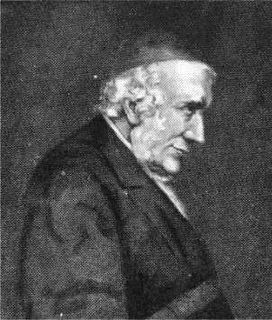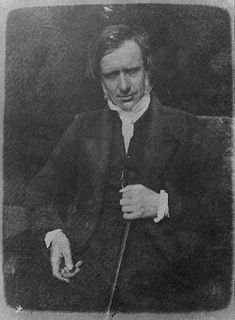A Quote by Henry Allen Ironside
Sin had no sooner come into the world than God came in grace seeking the sinner, and so from the first question, 'Adam, where art thou?' on to the incarnation, God has been speaking to man.
Related Quotes
The cliché, God hates the sin but love the sinner, is false on the face of it and should be abandoned. Fourteen times in the first fifty Psalms alone, we are told that God hates the sinner, His wrath is on the liar, and so forth. In the Bible, the wrath of God rests both on the sin (Romans 1:18ff) and on the sinner (John 3:36).
Now hear it, O inhabitants of the earth, Jew and Gentile, Saint and sinner! When our father Adam came into the garden of Eden, he came into it with a celestial body, and brought Eve, one of his wives, with him. He helped to make and organize this world. He is Michael, the Archangel, the Ancient of Days! about whom holy men have written and spoken -- He is our Father, and our God, and the only God with whom we have to do. Every man upon the earth, professing Christians or non professing, must hear it, and will know it sooner or later.
What is sin? It is the glory of God not honored. The holiness of God not reverenced. The greatness of God not admired. The power of God not praised. The truth of God not sought. The wisdom of God not esteemed. The beauty of God not treasured. The goodness of God not savored. The faithfulness of God not trusted. The commandments of God not obeyed. The justice of God not respected. The wrath of God not feared. The grace of God not cherished. The presence of God not prized. The person of God not loved. That is sin.
Take steadily some one sin, which seems to stand out before thee, to root it out, by God's grace, and every fibre of it. Purpose strongly, by the grace and strength of God, wholly to sacrifice this sin or sinful inclination to the love of God, to spare it not, until thou leave of it none remaining, neither root nor branch.
Sin! Sin! Thou art a hateful and horrible thing, that abominable thing which God hates. And what wonder? Thou hast insulted His holy majesty; thou hast bereaved Him of beloved children; thou hast crucified the Son of His infinite love; thou hast vexed His gracious Spirit; thou hast defied His power; thou hast despised His grace; and in the body and blood of Jesus, as if that were a common thing, thou hast trodden under foot His matchless mercy. Surely, brethren, the wonder of wonders is, that sin is not that abominable thing which we also hate.
Let them no more say, God must do all, we can do nothing, and so encourage themselves to live in a careless neglect of God, and of their own souls, and salvation. Most certainly, altho' we cannot say, That if men improve their natural abilities as they ought to do, that grace will infallibly follow, yet there will not one sinner in all the reprobate world, stand forth at the day of judgment, and say, Lord, thou knowest I did all that possibly I could do, for the obtaining grace, and for all that, thou didst withhold it from me.
Satan’s sin becomes the first sin of all humanity: the sin of ingratitude. Adam and Eve are, simply, painfully, ungrateful for what God gave. Isn’t that the catalyst of all my sins? Our fall was, has always been, and always will be, that we aren’t satisfied in God and what He gives. We hunger for something more, something other.
Our forefather Adam... used his freedom to turn toward what was worse and to direct his desire away from what had been permitted to what was forbidden. It was in his power 'to be united to the Lord and become one spirit with God...' (I Cor. 6:15). But Adam was deceived and chose to cut himself off voluntarily from God's happy end for him, preferring by his own free choice to be drawn down to the earth (cf. Gen. 2:17) than to become God by grace.
When a man is in God's grace and free from mortal sin, then everything that he does, so long as there is no sin in it, gives God glory and what does not give him glory has some, however little, sin in it. It is not only prayer that gives God glory but work. Smiting on an anvil, sawing a beam, whitewashing a wall, driving horses, sweeping, scouring, everything gives God some glory if being in his grace you do it as your duty.



































